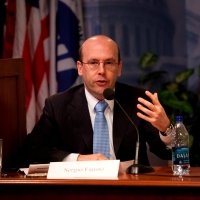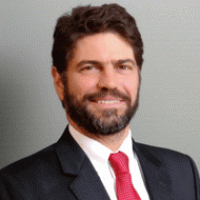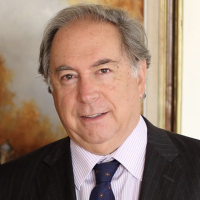Brazil and South America
At her inauguration in 2011, Brazilian President Dilma Rousseff announced, “with vehemence and firmness,” Brazil’s decision to “associate its economic, social, and political development” with the continent of South America. Rousseff specifically mentioned the Mercosur trade bloc and the Union of South American Nations (UNASUR) as essential components in the construction of a multipolar world. Yet huge asymmetries separate Brazil from its neighbors: at the end of 2011, Brazil’s GDP accounted for approximately 60 percent of the total GDP of South America and close to 40 percent of the total output of all of Latin America. Brazil’s “rise” as a global power and its growing clout on a host of global issues raise as many questions as they answers about the Brazil’s relationship with other nations in South America.
- What does South America mean for a range of actors in Brazil—the government, private sector, and other state entities such as the development bank BNDES and the oil company Petrobras? Do strategic actors in Brazil view South America or Latin America in general as a platform from which to project the country’s global rise?
- How is Brazil viewed by its neighbors? Is it considered a regional leader in political and diplomatic terms, or do others act in that capacity? How do countries situate themselves vis-à-vis Brazil’s economic power? Is Brazil’s rise viewed as beneficial or threatening or some combination of the two?
Hon. Antonio Simões, Sergio Fausto, and Ricardo Sennes discussed the views from Brazil while Hon. Juan Gabriel Valdés, Hon. Gustavo Fernández, Ana María Sanjuán, Juan Gabriel Tokatlian, and Juan Estebán Orduz discussed the views from the region.
Photo courtesy of flickr user thejourney1972
Speakers






Hosted By

Latin America Program
The Wilson Center’s prestigious Latin America Program provides non-partisan expertise to a broad community of decision makers in the United States and Latin America on critical policy issues facing the Hemisphere. The Program provides insightful and actionable research for policymakers, private sector leaders, journalists, and public intellectuals in the United States and Latin America. To bridge the gap between scholarship and policy action, it fosters new inquiry, sponsors high-level public and private meetings among multiple stakeholders, and explores policy options to improve outcomes for citizens throughout the Americas. Drawing on the Wilson Center’s strength as the nation’s key non-partisan policy forum, the Program serves as a trusted source of analysis and a vital point of contact between the worlds of scholarship and action. Read more


Brazil Institute
The Brazil Institute—the only country-specific policy institution focused on Brazil in Washington—aims to deepen understanding of Brazil’s complex landscape and strengthen relations between Brazilian and US institutions across all sectors. Read more
